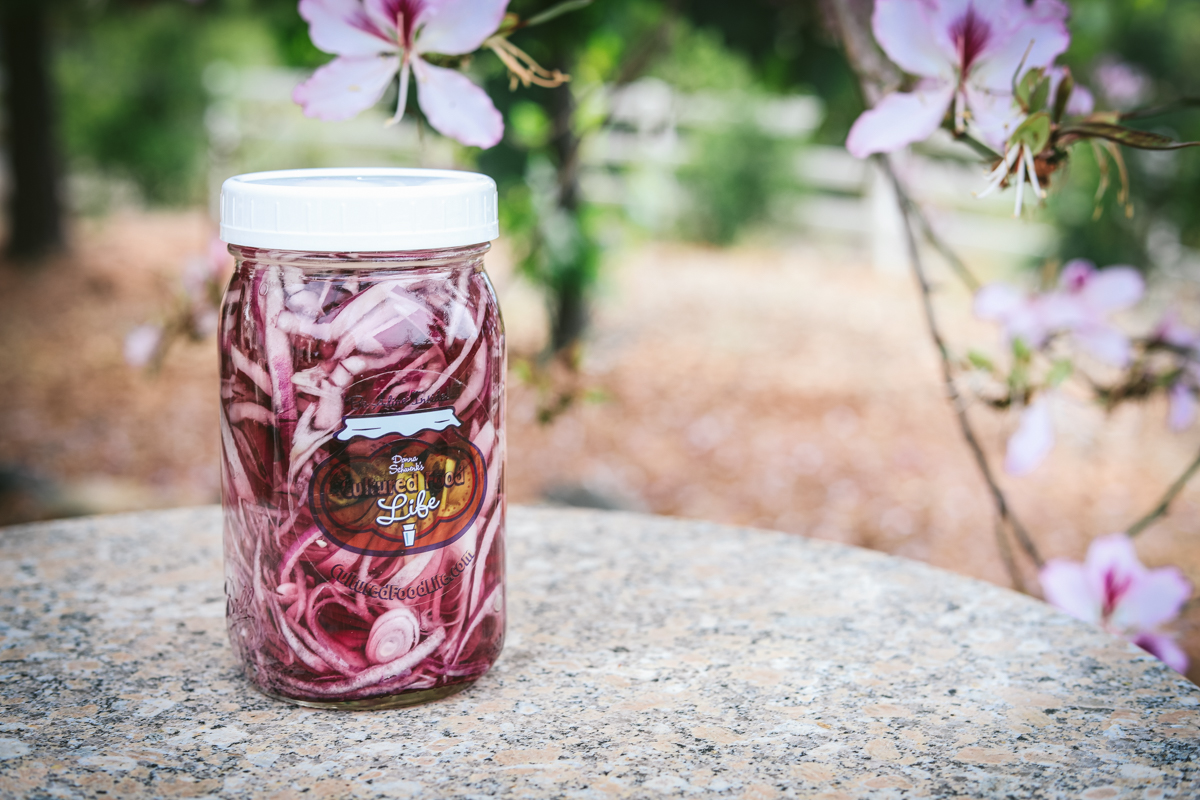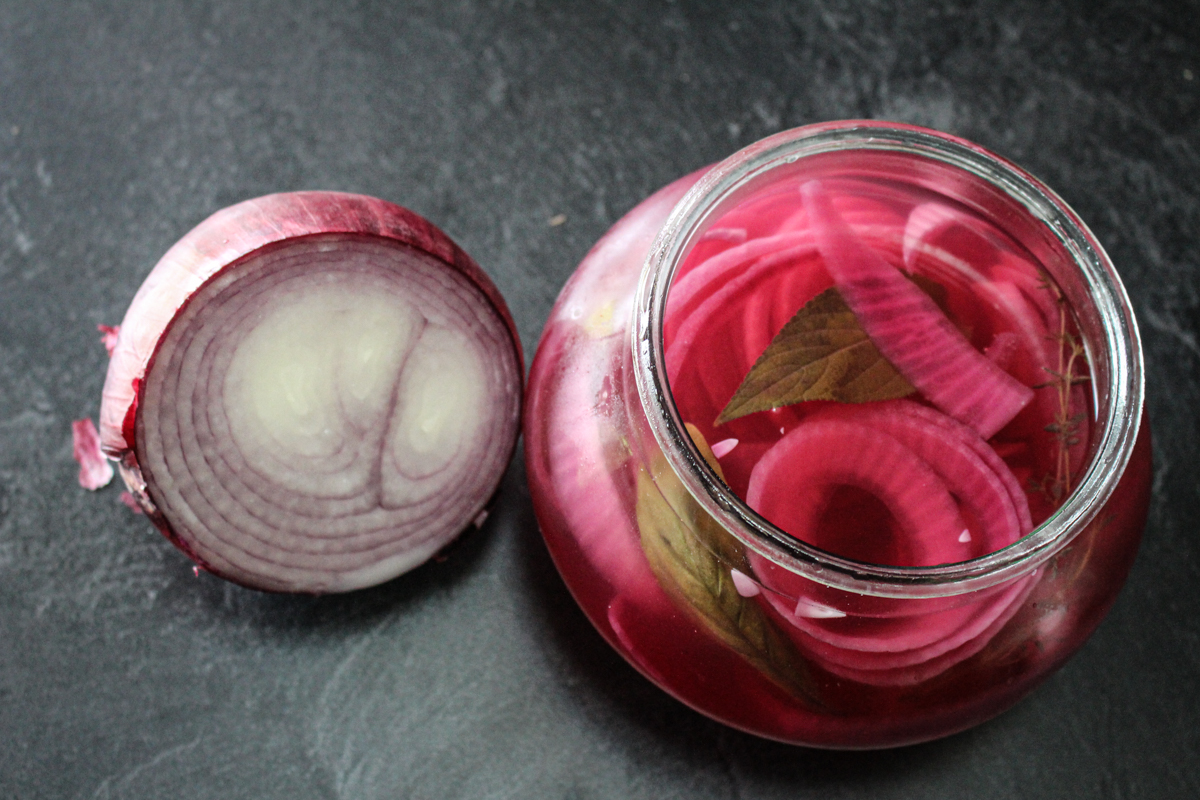
Two Ways to Make Fermented Red Onions
Red Onions are powerful prebiotics
I love red onions and we eat a ton of them on everything. Making a jar of fermented red onions allows us to eat them often because they taste so good and are stored in my fridge - already chopped and ready to eat. Onions are powerful prebiotics which means they feed your microbes like crazy. Those little microbe minions inside of you grow and multiply as they eat the onions you consume. Onions are particularly rich in the prebiotics inulin and fructooligosaccharides. Raw onions contain 8.6% prebiotic content which is a lot for vegetables. Cooked onions still contain 5% but much of the fiber turns to sugar. Raw is better! Check out this post to see which ones have the most. Prebiotics as Important as Probiotics.
Prebiotics are nondigestible types of fiber that are broken down by the good bacteria in your gut. Gut bacteria feed on prebiotics and create short-chain fatty acids that have a myriad of health benefits.
Health Benefits of Onions
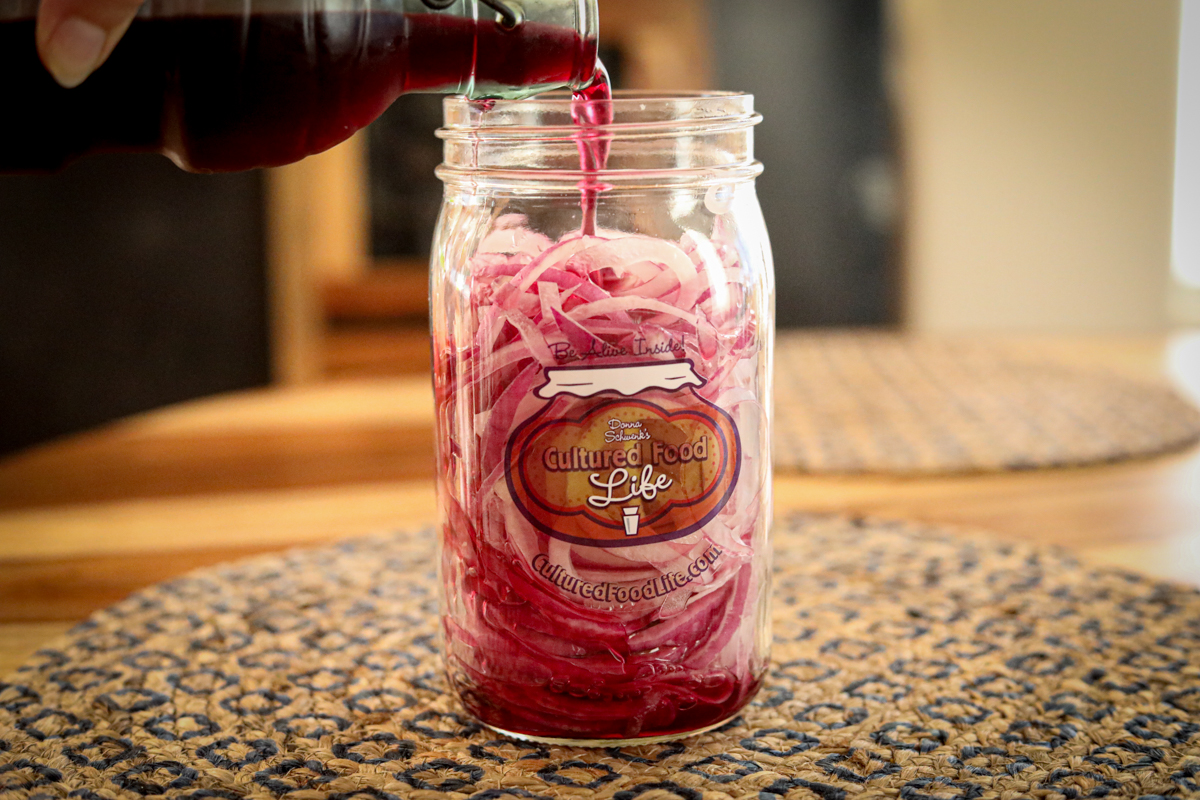

Heart and Blood Pressure Help
Onions contain powerful antioxidants and compounds that fight inflammation. The flavonoid quercetin is one of these antioxidants. This flavonoid helps avoid heart disease by preventing blood clots and keeping cholesterol from sticking to arterial walls. It's highly concentrated in onions. Since it’s a potent anti-inflammatory, it may help decrease heart disease risk factors such as high blood pressure.
A study of 70 overweight people with high blood pressure found that a dose of 162 mg per day of quercetin-rich onion extract significantly reduced systolic blood pressure by 3–6 mmHg compared to a placebo [1]
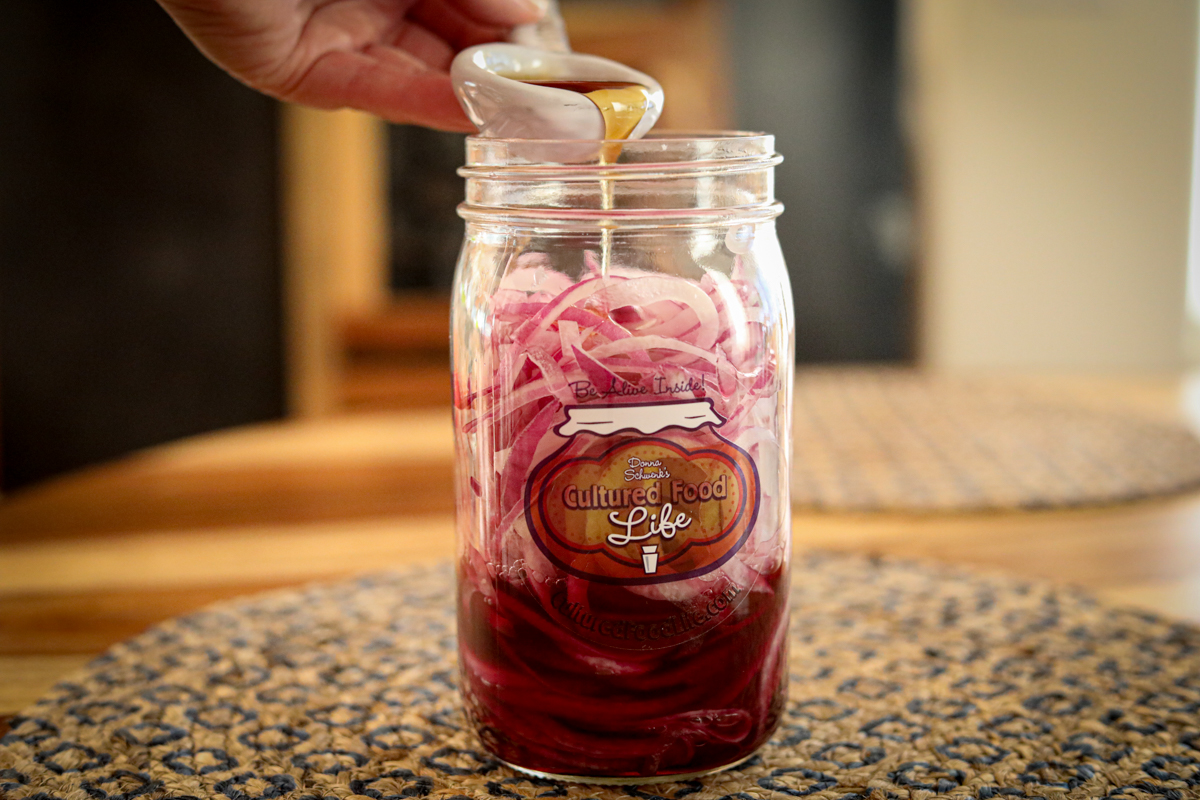

Blood Sugar Help
Eating onions can help those struggling with diabetes and prediabetes. Sulfer and quercetin compounds found in onions possess antidiabetic effects and red onions have more compounds than white onions. Quercetin is one of the most extensively studied flavonoids. Its powerful antioxidant and anti-inflammatory qualities are well documented. One of its most impressive abilities is how it interacts with cells in the small intestine, pancreas, skeletal muscle, fat tissue, and liver to control whole-body blood sugar regulation.[2]
A study done on 42 people with type 2 diabetes showed that eating 3.5 ounces (100 grams) of fresh red onion reduced fasting blood sugar levels by about 40 mg/dl after four hours.[3]
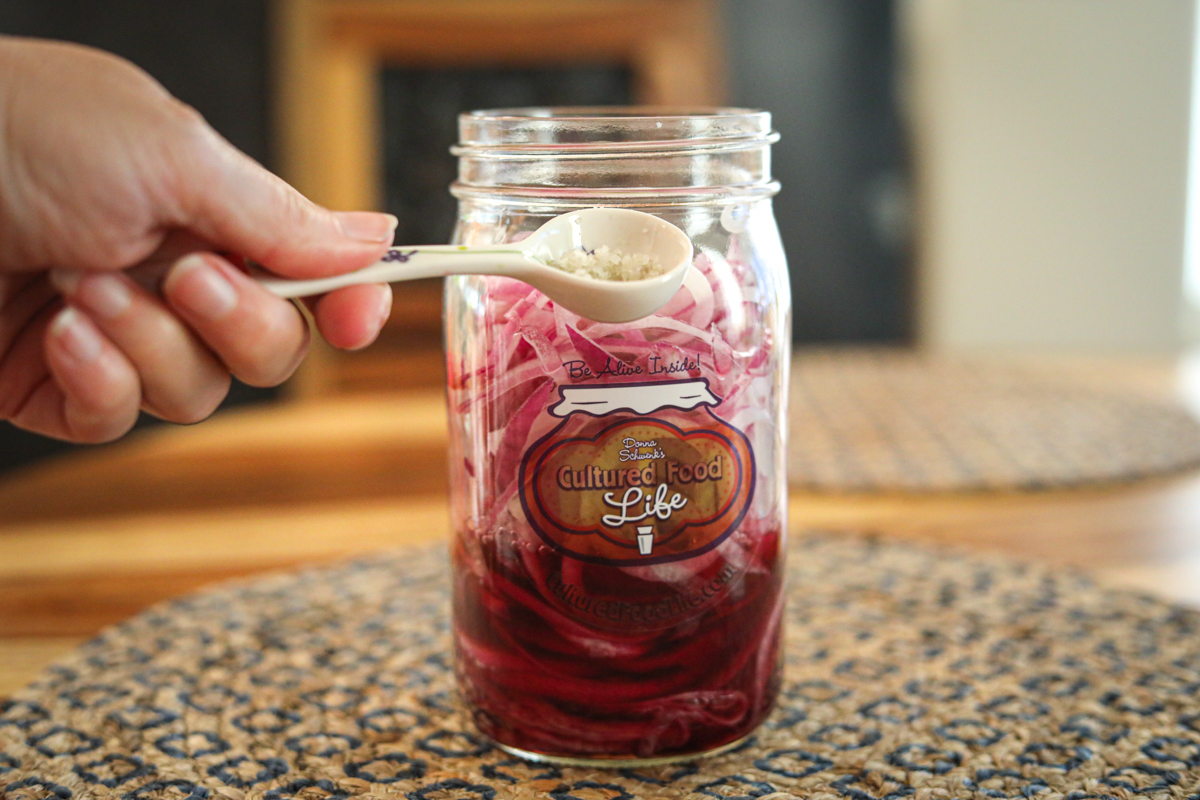

Lots of C and B Vitamins
Red onions have a lot of vitamin C which is something we need throughout the day since it's a water-soluble vitamin. This means it doesn't last in the body for very long. Water-soluble vitamins dissolve in water. Leftover amounts of the vitamin leave the body through the urine.
Fermenting onions will increase the vitamins and also allow more nutrient absorption since fermented foods are predigested. Red onions are also rich in B vitamins, folate (B9), and pyridoxine (B6). These vitamins play key roles in metabolism, red blood cell production, and nerve function. Everybody needs more B and C vitamins. They help strengthen adrenal function and keep your moods calm and productive.
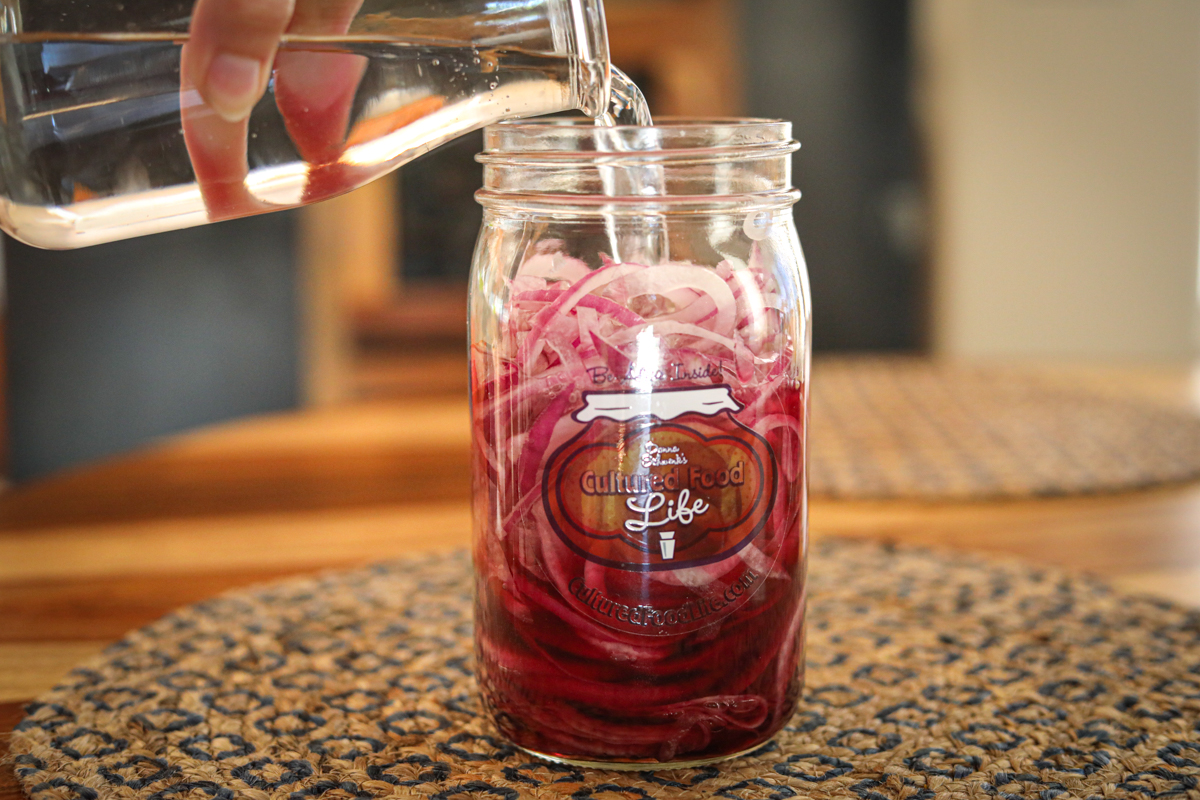

Ways To Use Fermented Red Onions
You will love these fermented red onions. They're so fun and easy to make and you'll want to always keep a jar in your fridge. I have two recipes and you can pick which is easiest for you. Here are a few of the ways I love to use them.
- Add fermented onions as a salad topping
- Use the fermented juice to add to salad dressing and condiments
- Try adding onions to egg dishes or cooked veggies as a topping
- Blend them into kefir cheese for a yummy dip
- Add them to hummus and bean dips
- Top your tacos with extra fermented onions and kefir cheese
- Add them to all your meals in many ways!
Two Ways To Make Fermented Onions
Are you on the list?
Sign up today and I'll send you my free Getting Started Guide!
Each week I'll send you updates, tips, recipes, and more! You might even be a winner of my weekly giveaway! (starter cultures, memberships, and more!)
Come be a part of my cultured food family!

